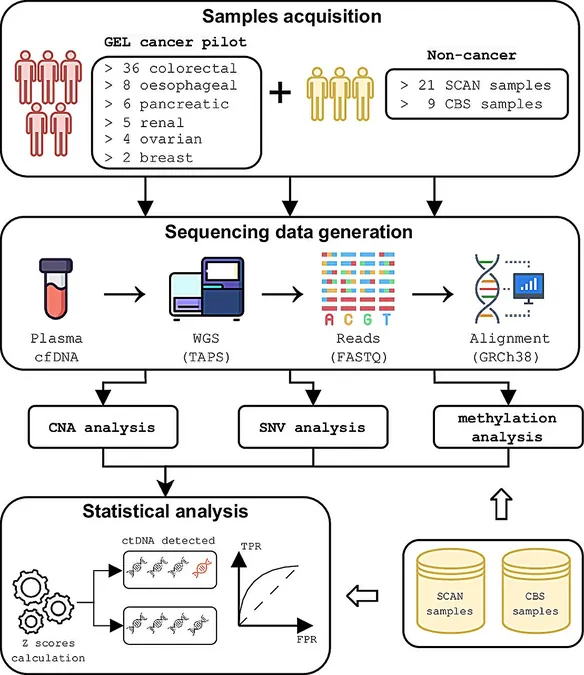
Breakthrough Blood Test Uses Machine Learning to Spot Cancer Early – Is This the Future of Cancer Screening?
2025-01-13
Author: Rajesh
Introduction
In a groundbreaking development, researchers at Oxford University have introduced a revolutionary blood test called TriOx, which harnesses the power of machine learning to detect multiple cancers at their earliest stages. This innovative technology aims to provide a fast, sensitive, and minimally invasive alternative to traditional cancer screening methods, offering hope for more effective early detection.
Significance of TriOx
Published in *Nature Communications*, the study reveals that TriOx can accurately identify cancer across six types—colorectal, esophageal, pancreatic, renal, ovarian, and breast—demonstrating a remarkable ability to differentiate between patients who have cancer and those who do not. The earlier cancer is detected, the higher the chances of successful treatment and the lower the costs for healthcare systems, making this advancement a significant leap toward transforming cancer diagnostics.
How TriOx Works
Liquid biopsies have emerged as a crucial area of research in recent years, primarily due to their less invasive nature compared to conventional tests. However, most existing tests focus on one or two features of cancer DNA, limiting their effectiveness. TriOx stands apart by utilizing a cutting-edge DNA analysis technique known as TAPS, combined with machine learning, to examine multiple critical features of circulating DNA in the blood. This sophisticated approach enhances the test’s sensitivity in detecting the small amount of cancer DNA, making it particularly accurate.
Statements from Researchers
Lead researcher Professor Anna Schuh emphasized the test’s innovative design: 'Our new test combines the best of cutting-edge science and machine learning. It allows us to analyze the entire cancer genome, which significantly improves the reliability of cancer detection. Although still in development, we believe this test could dramatically increase survival rates for millions of people by enabling routine blood tests that detect cancer when it is most treatable.'
Test Evaluation Results
The effectiveness of the TriOx test was evaluated using blood samples from patients with various symptoms referred by their general practitioners, as well as asymptomatic individuals. Results showed an impressive sensitivity of 94.9% and specificity of 88.8%, suggesting that the test can minimize unnecessary procedures for those without cancer while ensuring timely treatment for those diagnosed.
Future Prospects
Dr. Dimitris Vavoulis, co-lead researcher from Oxford's Wellcome Centre for Human Genetics, noted the potential impact of this research: 'Many cancers, notably pancreatic and ovarian, often remain undetected until they reach advanced stages, at which point treatment is more challenging and less effective. Current screening methods are restricted and often invasive, discouraging regular check-ups. In the future, we envision a simple blood draw being the key to screening for multiple cancers, providing patients and doctors with a faster and more convenient tool.'
Conclusion
With further research and development, TriOx could pave the way for a new era in cancer detection, enabling patients to catch the disease early and prioritize their treatment options. This significant step forward not only has the potential to save lives but could also transform the standard practices of cancer diagnosis worldwide. Stay tuned for more updates on this exciting progression in the medical field!

 Brasil (PT)
Brasil (PT)
 Canada (EN)
Canada (EN)
 Chile (ES)
Chile (ES)
 Česko (CS)
Česko (CS)
 대한민국 (KO)
대한민국 (KO)
 España (ES)
España (ES)
 France (FR)
France (FR)
 Hong Kong (EN)
Hong Kong (EN)
 Italia (IT)
Italia (IT)
 日本 (JA)
日本 (JA)
 Magyarország (HU)
Magyarország (HU)
 Norge (NO)
Norge (NO)
 Polska (PL)
Polska (PL)
 Schweiz (DE)
Schweiz (DE)
 Singapore (EN)
Singapore (EN)
 Sverige (SV)
Sverige (SV)
 Suomi (FI)
Suomi (FI)
 Türkiye (TR)
Türkiye (TR)
 الإمارات العربية المتحدة (AR)
الإمارات العربية المتحدة (AR)